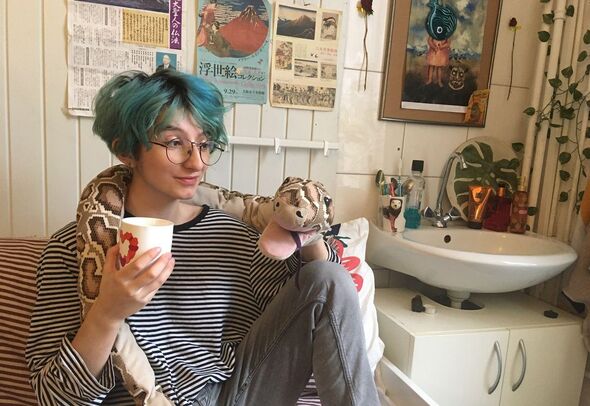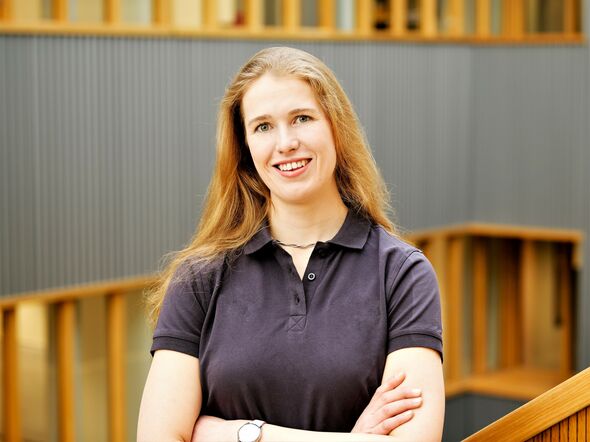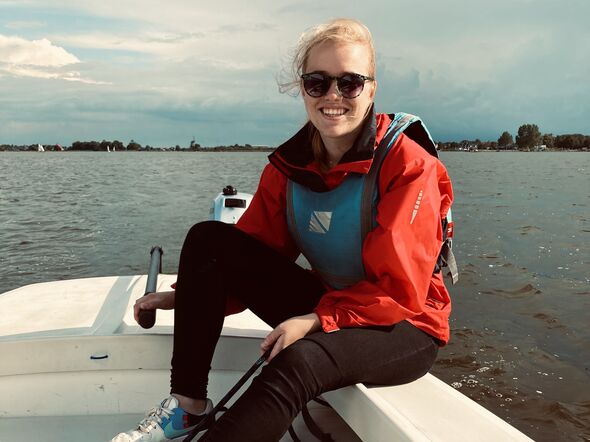- People , Student
- 06/01/2021
Anxious and ambitious
The university offers support to people with a disability, which can be both mental and physical. Nevertheless, the idea exists that not all students who are entitled to support actually apply for it. Student Alice Sibiescu, for example, doubted whether they were entitled to support: “Is my problem big enough to report it? Other people have much bigger issues, don't they?” Fellow student Stern Hutjes is happy that he made himself known and got help: "Despite my stress, I followed an honors program."
Anneke Sikkema, policy officer at Policy, Advice & Projects (ESA), is responsible for the Study+ program. “It’s intended for all students who are (temporarily) limited in their studies and need support to finish their program. You can think of physical disabilities, which makes moving around campus less easy, but also depression, pregnancy or care for a family member or friend.”
Ambitions
Stern Hutjes, master's student of Industrial Design, is pleased that he has registered for the Study+ program. “Too many stimuli and pressure can be overwhelming for me. I need more time then. I always thought it was just a bit of stress, no need to ask for help. When I came into contact with companions through Lighthouse, I realized that I should ask for help.” The Study + program has helped him with the simple knowledge that if necessary, he can take more time for his master's. “Taking more time for the design process is actually not done there. In theory you could design endlessly. Then there’s no end and therefore there are strict deadlines. But knowing that it’s an option if I really can’t take it, keeps me calm.
Hutjes’ fellow student Alice Sibiescu is doing two courses: a bachelor Industrial Design and a premaster Electrical Engineering. And that in addition to the fact that they (Sibiescu is non-binary and that is why we use ‘they’ and ‘them’ to refer) are hard of hearing and have autism. "What I like about Study+ is that there is also attention for other things that can cause delays, such as family problems." Hutjes completes them: "It is nice when a holistic approach is used. We are not our disabilities but we have them. We are still full human beings. I am anxious and ambitious. Despite my stress, I still followed an honors program.” Sibiescu: “My brain is difficult to keep on a leash and yet I am following two programs. Something like that should remain possible for everyone.”

Waiting list
The online lectures made it more difficult for Sibiescu to understand their teachers. Lip-reading was not so easy anymore. For their hearing impairment, they have applied for a tool for live transcription. “That would be very helpful. At first I didn't know I could ask for that. Before I signed up, I thought: "Is my problem big enough? Other people have much worse things going on, don't they?” Talking to companions helps with this, Hutjes thinks. Sibiescu: “The waiting list for the student psychologist is often still very long. It would be good to invest money to make it shorter. Such a waiting period can be a threshold.” Hutjes: “We hope to contribute to that with Lighthouse, via support groups for example. Sometimes you have a problem that can also be solved by speaking about it with companions, so that you do not to get in the long queue for the psychologist.”
It is often the little things that we are not always aware of, that are troublesome. Sibiescu: “Take the updates from the Executive Board. They always say: "You are doing well, we know that corona is difficult, but you can do it." That very quickly ignores the pain points of our time. You just can't always be positive.” Hutjes: “Something like that gives you the feeling that your negative emotions should not exist. I understand why they say it: you want people to remain optimistic. But a little more recognition is sometimes also important. Yet corona has also created a kind of equality: everyone is going through this now and it has become a bit easier to talk about problems. More people are doing it now.”
Student Advisory Committee
To further improve the program, there is now also a student advisory committee, "because employees have a slightly different view than students", Sikkema knows. She is still looking for more students who want to participate in the committee, for which you can contact her if you’re interested. Two students who are already in the committee, besides Hutjes and Sibiescu, are Julie de Nooij and Anne Jonker. Jonker, master's student of Innovation Sciences, had an accident in 2006 in which caused brain damage. “Some parts of my brain are broken, which causes me to process information more slowly. I sometimes feel guilty about participating in the program and being on the advisory committee, because I still think my disability is not that bad. But I am entitled to extra time for my exams. The chance of getting help is there, you just have to take it. I want to stand up for people with a disability that you do not see, as is the case with myself. It would be good to have some more students in the committee, especially someone who has a vision impairment, so all interests are represented.”
Julie de Nooij, bachelor Electrical Engineering, has a congenital injury to her wrists. It ensures that I can only write and type for five minutes at a time. I had a difficult time, especially in the first year at uni, when it was not yet clear exactly what I was entitled to. I couldn't get an oral exam at the time, and I can't take an exam without that option. Fortunately now I do get oral exams instead of written ones. Nothing can be done about my injury. Yes, well, locking my wrists. But then I can't move them at all anymore and I don't want that. I do want to find out whether I can ultimately fix it myself with electrical engineering. Who knows, I might come up with something one day.”
Jonker: “If you are university-worthy in terms of capability, you should also be able to study there. The university must assume a supporting role in this. But then you must of course make yourself known. If you still find that difficult, talk to a fellow student, student mentor or Lighthouse first, that might be a bit more accessible. Besides that it’s important that we as a university give room to this topic so we get a more understanding community.”
Being honest
De Nooij: “In my Intro group it was said immediately: go talk to a study advisor. I arranged a meeting right away.” Sikkema agrees with the ladies: “Issues such as autism or mental problems are not always immediately visible, so it is very important that they are reported. But we also want to remain realistic: if someone has a lot of limitations, we have to be honest about what we can offer as a university.” Jonker also thinks about the community in a broader sense: “It’s not just bachelor’s and master’s students that need support, how about PhD students? Officially they are employees, not students. But still in need of support. That also needs to be considered how to deal with that.”
The parties involved agree that communication around Study + could be improved. “It should be as easy as possible to report it,” De Nooij says. “It is good that when you register as a student, you are asked about 'having a disability', but perhaps we can describe it differently so that more students feel like they are being addressed as well. For example, ‘is there anything that you may limit you in your studies and needs to be discussed?’ That is more inclusive, also for mental problems. And we have to keep asking that question during the program, because the situation can also change.”
Numbers
In the Netherlands, about thirty percent of students have a disability, of which ten percent actually suffer from it during their studies. Unfortunately, TU/e has no figures available for the number of students using Study+. “We would like to gain more insight into those though,” Sikkema says. However, there are around 340 students who register for exam facilities, such as extra time. This academic year, already 344 applied for that support and that number will most likely rise further throughout the year.
On behalf of TU/e, rector Frank Baaijens signed the ‘UN Convention on the Rights of Persons with Disabilities’, last October. In this context, policy is being improved. Making yourself known is therefore very important, all those involved agree. “As long as nothing is reported, we cannot help you,” Sikkema says. "In addition to reporting online during your registration, you can also register for a talk about studying with a disability, during the information days."


Discussion